
Management of Irritable Bowel Syndrome
Apr 29, 2019
Introduction
“It is very bothersome to face symptoms such as bloating, constipation, and incomplete emptying feeling at the same time throughout the year.” Sounds familiar? If yes, you are suffering from Irritable Bowel Syndrome (IBS). IBS is not a disease. However, it is a combination of at least 3 abdominal symptoms (Figure 1), for 3 days in a month, in 3 consecutive months 1. In Malaysia, 1 out of 6 individuals 2 are suffering from IBS, and it is two times more predominant in women 3.
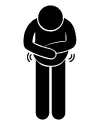
A
Abdominal Pain
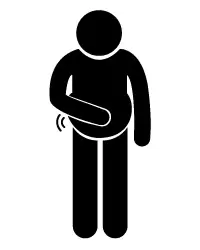
B
Bloating
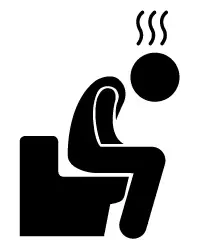
C
Constipation
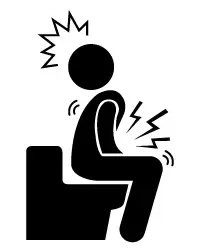
D
Diarrhea
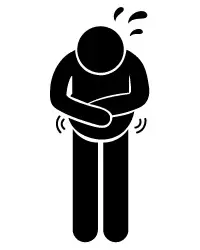
E
Incomplete
Bowel Emptying
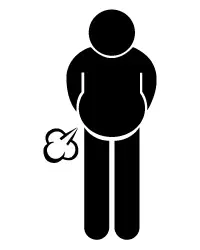
F
Flatulence
Figure 1: A to F Symptoms of
Irritable Bowel Syndrome (IBS)
Treatment of IBS
Conventionally, IBS is treated symptom by symptom (Table 1).
| Symptom | Medication | |
| 1 | Abdominal Pain | Pain Killer |
| 2 | Bloating | Antacid |
| 3 | Constipation | Laxative |
| 4 | Diarrhea | Anti-Diarrhea |
| Table 1: Treatment of IBS | ||
Probiotic to Relieve IBS
Instead of relying on medication, there is a powerful probiotic which can alleviate the IBS symptoms at a time – Lactobacillus plantarum 299v. This strain has been clinically proven to reduce the frequency and severity of IBS in just 4 weeks3 by these three special mode of actions:
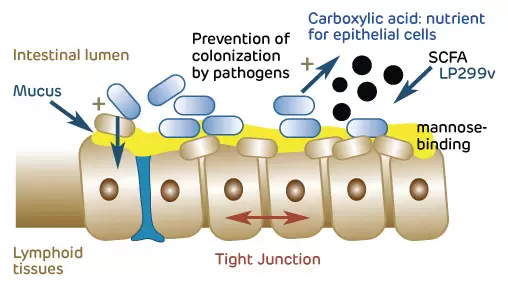
| 1. Unique Instestinal Binding4 |
|
| 2. Modulate gastrointestinal immunity5 |
|
| 3. Produce Short Chain Fatty Acids (SCFA)6 |
|
Health Tips to Overcome IBS
- Eat 6 small frequent meals and snacks instead of 3 large main meals.
- Include high fiber foods such as whole grains, fruits, and vegetables in your diet.
- Limit fatty foods, milk and milk products, caffeinated drinks, carbonated drinks, and alcohol.
- Drink at least 8 glasses of plain water throughout the day (especially for people with diarrhea).
References
- Lacy, B., & Patel, N. (2017). Rome Criteria and a Diagnostic Approach to Irritable Bowel Syndrome. Journal of Clinical Medicine, 6(11), 99. doi:10.3390/jcm6110099
- Tan, Y., Goh, K. L., Muhidayah, R., Ooi, C. L., & Salem, O. (2003). Prevalence of irritable bowel syndrome in young adult Malaysians: A survey among medical students. Journal of Gastroenterology and Hepatology, 18(12), 1412-1416. doi:10.1046/j.1440-1746.2003.03212.x
- Ducrotté, P. (2012). Clinical trial:Lactobacillus plantarum299v (DSM 9843) improves symptoms of irritable bowel syndrome. World Journal of Gastroenterology, 18(30), 4012. doi:10.3748/wjg.v18.i30.4012
- Adlerberth, I., Ahrne, S., Johansson, M-L., Molin, G., Hanson, L.A., and Wold, A.E. (1996). A Mannose-Specific Adherence Mechanism in Lactobacillus plantarum Conferring Binding to the Human Colonic Cell Line HT-29. Applied and Environmental Microbiology, 62: 2244-2251
- Mack, D.R., Michail, S., Wei, S., McDougall, L. and Hollingsworth, M.A. (1999). Probiotics inhibit enteropathogenic E. coli adherence in vitro by inducing intestinal mucin gene expression. American Journal of Physiology, 276: G941-G950
- Johansson, M-L., Nobaek, S., Berggren, A., Nyman, M., Bjorck, I. Ahrne, S., Jeppsson, B. and Molin, G. (1998). Survival of Lactobacillus plantarum DSM 9843 (299v), and effect on the short-chain fatty acid content of faeces after ingestion of a rose-hip drink with fermented oats. International Journal of Food Microbiology, 42: 29-38.



